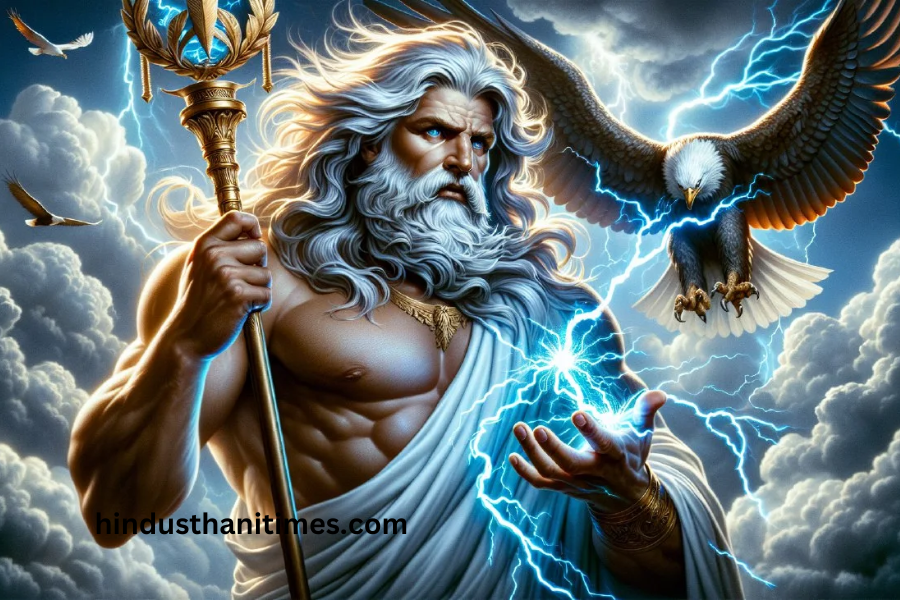The concept of a powerful god is a fundamental aspect of various religious and mythological traditions around the world. Throughout history, humans have sought to understand and connect with beings or forces that possess immense power and influence over the world and its inhabitants. Whether through prayers, rituals, or acts of devotion, people have sought to tap into the power of these gods in order to gain protection, blessings, or guidance. The idea of a powerful god resonates deeply within human societies, providing a sense of awe, purpose, and comfort. But who is the most powerful god in the world? This question has sparked countless debates and discussions across cultures and time periods.
Different Cultures and Their Beliefs About Powerful Gods
Every culture has its own unique set of beliefs and mythologies surrounding gods and deities. From the ancient Egyptians to the Norse gods of Scandinavia, each civilization has attributed different characteristics and powers to their respective gods. For example, in Hindu mythology, Lord Brahma is revered as the creator god, responsible for the creation of the universe.
In Greek mythology, Zeus, the king of the gods, is considered the most powerful, known for his control over thunder and lightning. The Mayans worshiped gods such as Kukulkan, the feathered serpent, associated with the power of fertility and rain. The diversity of beliefs about powerful gods reflects the rich tapestry of human imagination and cultural expression.
Historical Examples of Powerful Gods
Throughout history, there have been countless examples of gods and deities who were believed to possess immense power and influence over the world. In ancient Egypt, the god Ra, the sun god, was considered the most powerful deity, as the sun was seen as the source of all life. In Norse mythology, Odin, the chief god, was revered for his wisdom, magic, and ability to shape the course of events. In ancient Greece, the god Poseidon wielded the power to control the seas and oceans, while Hades ruled over the realm of the dead. These historical examples highlight the significance of powerful gods in shaping the beliefs, values, and practices of ancient civilizations.
Comparing the Power of Gods in Different Mythologies
When comparing the power of gods in different mythologies, it is important to consider the unique characteristics and abilities attributed to each deity. While some gods are associated with specific domains such as the sun, the sea, or the underworld, others possess a more comprehensive range of powers.
For example, the Hindu god Vishnu is often described as the preserver and protector of the universe, with the ability to assume different forms and incarnations to maintain cosmic order. In contrast, the monotheistic religions such as Christianity, Islam, and Judaism believe in a single, all-powerful god who is considered omnipotent and omniscient. These varying perspectives on the power of gods reflect the cultural, historical, and theological contexts in which they originated.
The Concept of a Universal or All-Powerful God
The concept of a universal or all-powerful god has been a central tenet of many religious traditions throughout history. The belief in a single deity who possesses infinite power and knowledge is a cornerstone of monotheism. In these religions, such as Christianity, Islam, and Judaism, the idea of an all-powerful god is deeply ingrained in the teachings, scriptures, and rituals.
This belief provides a sense of unity, purpose, and guidance to followers, who find solace and strength in the belief that there is a higher power overseeing the world. However, the notion of a universal or all-powerful god is not universally accepted, and other religious and philosophical traditions offer different interpretations of divine power.
The Influence of Powerful Gods on Human Society and Culture
Powerful gods have played a significant role in shaping human society and culture throughout history. The belief in a higher power has provided a moral framework, guiding individuals and communities in their actions and decisions. Religious rituals, ceremonies, and festivals centered around powerful gods have brought communities together, fostering a sense of belonging and shared identity.
Moreover, the stories and myths surrounding powerful gods have inspired works of art, literature, and music, enriching human creativity and expression. The influence of powerful gods can be seen in architecture, with grand temples and sacred sites built as places of worship and reverence. The impact of powerful gods on human society and culture is profound and multifaceted.
Debates and Discussions About the Most Powerful God in the World
The question of who is the most powerful god in the world has sparked passionate debates and discussions among theologians, scholars, and believers alike.
Each religious tradition presents its own arguments and evidence to support their claims of divine power. Some emphasize the benevolence and mercy of their god, while others focus on the god’s ability to create and destroy.
The criteria for measuring power can vary greatly, ranging from physical strength and supernatural abilities to moral authority and wisdom. These debates reflect the diversity of beliefs and perspectives on the nature of divine power, and the subjective nature of evaluating the power of gods.
Personal Beliefs and Perspectives on the Most Powerful God
The question of the most powerful god is deeply personal and subjective. Each individual holds their own beliefs and perspectives based on their cultural background, religious upbringing, and personal experiences.
Some may find solace and strength in the belief in an all-powerful god who guides and protects them, while others may find meaning and purpose in different religious or philosophical traditions. The diversity of beliefs and perspectives on the most powerful god is a testament to the complexity of human spirituality and the search for truth and meaning in the world.
The Role of Faith and Worship in the Power of a God
Faith and worship play a crucial role in the power attributed to a god. The act of believing in a higher power and placing trust in their abilities can have a profound impact on an individual’s life. Faith provides comfort, hope, and a sense of purpose, allowing individuals to navigate the challenges and uncertainties of life.
Moreover, worship and devotion are acts of acknowledgment and reverence towards a god, reinforcing the belief in their power and inviting divine blessings and intervention. The power of a god, therefore, is not solely dependent on their inherent qualities or abilities, but also on the faith and devotion of their followers.
Conclusion
In conclusion, the question of who is the most powerful god in the world is a complex and subjective one. Different cultures and religions have their own beliefs and mythologies surrounding powerful gods, each attributing unique characteristics and abilities to their respective deities. The power of gods can vary greatly, from control over natural elements to moral authority and wisdom. Furthermore, the concept of a universal or all-powerful god is central to many religious traditions, offering a sense of unity, purpose, and guidance. The influence of powerful gods on human society and culture is profound, shaping beliefs, values, and practices. Ultimately, the question of the most powerful god is deeply personal and subjective, reflecting the diversity of human beliefs and perspectives on the nature of divine power.



